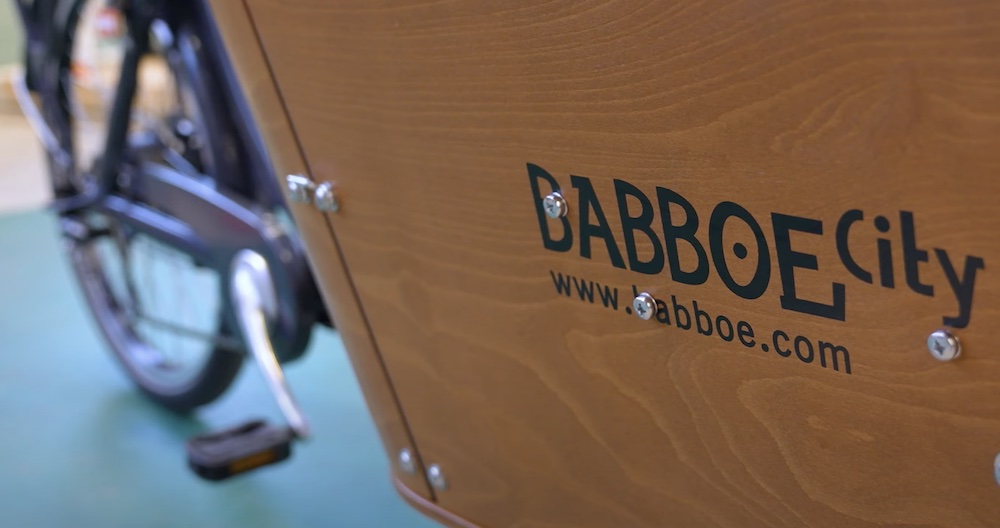The sharing platform Baqme, known for its electric cargo bike rental service in urban areas, recently suspended its activities in Ghent and the Netherlands.
While the Dutch cargo bike manufacturer Babboe has been under fire in its own country for weeks, customers in Belgium are also very concerned and Babboe is now also in trouble in Flanders. The Dutch manufacturer is recalling the cargo bike models now that research shows that the safety of the City, City E, Mini and Mini E models cannot be guaranteed. The recent concerns surrounding Babboe cargo bikes, involving frame breakage in various models, raise questions about the safety requirements that such vehicles must meet.
FOD
The recall, which is overseen by the Federal Public Service (FPS) Economy in Belgium, demonstrates the active role of government agencies in protecting consumers from defective or potentially dangerous products. The FPS Economy has the authority to intervene and oblige the recall of products if this is deemed necessary for the safety of consumers. This measure offers an extra layer of protection, where the government can act as an independent party to safeguard the interests of consumers.
Now the question arises about consumer protection after the warranty period expires. Lien Meurisse, spokesperson for the Federal Public Service (FPS) Economy, provides clarity on this issue during a broadcast of the VRT program WinWin on Radio2, in which the rules regarding hidden defects and the manufacturer's responsibility are discussed.
When the warranty period has expired, consumers can indeed rely on the regulations regarding hidden defects. These regulations state that if a consumer can demonstrate that a product had a structural defect at the time of purchase, he or she is entitled to compensation. Meurisse clarifies: “It seems likely to us that breaking the axle of a cargo bike is a structural defect, but it remains up to the judge to make a ruling on this.” This implies that, in case of hidden defects, consumers can only claim a discount or a refund from the manufacturer, depending on the severity of the defect and its impact on the functionality of the product.
This law protects consumers by ensuring that products meet expectations of safety and quality. If a product does not meet these expectations and therefore causes damage, the manufacturer can be held legally responsible.
Meurisse also emphasizes the Product Liability Act, which holds manufacturers liable for damage caused by defective products. "In other words, the manufacturer is liable if his product does not provide the safety you would expect and therefore causes damage."

The cessation of sales and recall are drastic measures that highlight not only the potentially serious consequences of product defects, but also the importance of strict safety standards and controls. This incident sheds light on the broader issue of product safety within the child transportation industry and the need for continuous evaluation and improvement of safety protocols.
baqme
The sharing platform Baqme, known for its electric cargo bike rental service in urban areas, recently suspended its activities in Ghent and the Netherlands. This decision was made in light of new safety guidelines and follows the recall by Babboe, the manufacturer of the electric cargo bikes used by Baqme.
In Ghent, the shared cargo bikes from the Baqme platform can temporarily no longer be rented. The bicycles were supplied by a Dutch manufacturer, where safety problems have arisen. There have been no incidents in Ghent yet, but the platform does not want to take any risks.
Baqme, which has been active in Ghent since 2022, has not reported any incidents involving their bicycles in the city to date. Despite this, the platform has decided not to take any risks regarding the security of its users. This cautious approach reflects a growing awareness and priority for consumer safety within the sharing economy. In response to the recall and suspended operations, baqme currently looking for alternative suppliers for its rental fleet. This move is indicative of the dynamic nature of the ride-sharing industry, where companies must be able to respond quickly to safety issues and changing market conditions.
This law protects consumers by ensuring that products meet expectations of safety and quality. If a product does not meet these expectations and therefore causes damage, the manufacturer can be held legally responsible.
The cessation of sales and recall are drastic measures that highlight not only the potentially serious consequences of product defects, but also the importance of strict safety standards and controls. This incident sheds light on the broader issue of product safety within the child transportation industry and the need for continuous evaluation and improvement of safety protocols.
Stint
This incident is inevitably reminiscent of the problems surrounding the Stint, the vehicle that was taken off Dutch roads after a tragic accident in 2018. At the heart of the controversy is the essential expectation that means of transport for the youngest and most vulnerable users – our children – must meet the highest safety standards. Manufacturers of such vehicles, such as Babboe with its cargo bikes, are faced with the complex task of providing innovative, sustainable and, above all, safe solutions to the growing problem of child transport.
Unlike the Stint, which falls under strict European regulations and requires type approval before it can go on public roads, Babboe cargo bikes from the Amersfoort cargo bike manufacturer do not fall under the CE marking. This means that these cargo bikes do not require type approval to be used. This raises questions about the level of safety tests and requirements to which these cargo bikes are subjected prior to their market introduction. Although the Stint case illustrates that even with type approval not all risks are excluded, it does emphasize the value of a critical, preliminary assessment of products.




